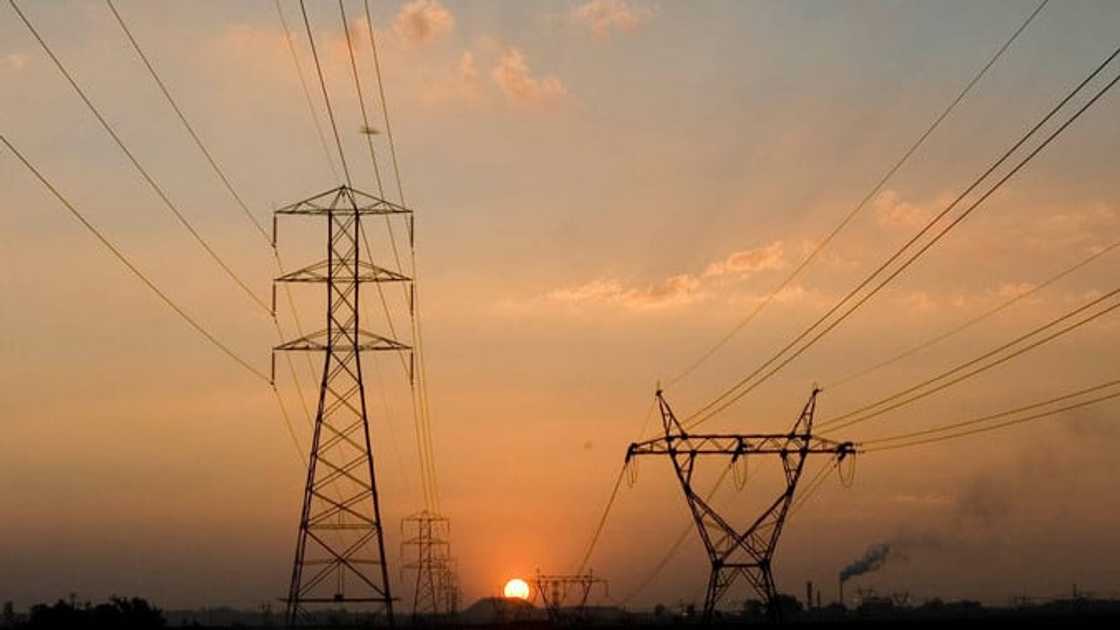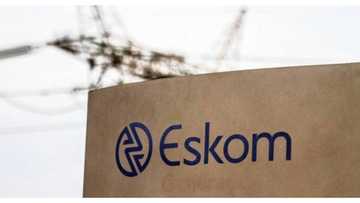Eskom Extends Loadshedding Until Saturday, Power Utility Struggling With Generation as Units Break Down
- At a press conference on Tuesday, 8 March, Eskom announced that loadshedding will have to continue longer than anticipated
- Eskom says it is struggling with generating electricity and there has been a loss of 21 000MW due to units breaking down
- South Africans are frustrated with continued rolling blackouts and are now worried that problems at Eskom will not be fixed
PAY ATTENTION: Click “See First” under the “Following” tab to see Briefly News on your News Feed!
JOHANNESBURG - Eskom's management held a media briefing on Tuesday, 8 March to update South Africans on the state of power stations now that loadshedding has been implemented.
The state-owned power utility previously announced on Monday afternoon that rolling blackouts would be implemented for two days; however, the tune has changed, and loadshedding is expected to continue until Saturday morning, 12 March.

Source: UGC
eNCA reports that loadshedding will remain at Stage 2 until power generation issues can be resolved. Eskom had stated that approximately 21 000MW were lost due to the failure of seven units at various power stations.

Read also
Eskom announces loadshedding stage 2 starting on Monday at 9pm, SA thinks it is due to incompetence
Four units at the Grootvlei, Kendal, Matla and Matimba power stations tripped while units at Arnot and Hendrina power stations were forcefully shut down. It has also been stated that Unit 3 at Medupi power station broke down just before loadshedding was implemented on Monday, according to Fin24.
Enjoy reading our stories? Download the BRIEFLY NEWS app on Google Play now and stay up-to-date with major South African news!
Eskom CFO Jan Oberholzer says three units are expected to return online today while maintenance will be carried out at several power stations.
Eskom concerned about the possibility of diesel prices going up
Due to the ongoing war between Russia and Ukraine, there is a concern that the possible rise in diesel prices could impact Eskom's ability to generate electricity.
Oberholzer says they're currently evaluating the impact of the rising of oil and gas prices on energy generation. He adds that they have also had a discussion about coal as they assess the impact of the Russia-Ukraine war.
"We are looking at what the impact will be. We are concerned about what this will do to our operations in SA," says Oberholzer.

Read also
Operation Dudula: Heated stand off between South Africans and foreign nationals In Alexandra
South Africans question whether loadshedding will ever end
@thabangxvii said:
"They must drop the price hike. We can't pay extra for their failures."
@bhekimdu said:
"How come you are not asking the CEO how did they get bonuses when they can't keep the lights on at all, what makes them deserve a reward when they can't meet the minimum KPI requirement of 99% uptime of any of their power stations?"
@Im_LH said:
"Yeah, we knew that would be the case since yesterday."
@kenna500000 said:
"And yet De Ruyter still gets to keep his job? We have NO leadership in SA."
@TashyRR said:
"Funny how we always get #Loadshedding when Eskom wants an increase but doesn't always get what they want."
@Hlomza_ZA said:
"I'd have loved to see black engineers taking centre stage on the whole Eskom blackouts issue. I am sure Matshela Koko & Jacob Maroga are not the only black engineers we have in this country. What caused the country to stall in the supply of electricity? #Loadshedding #Eskom"

Read also
Eskom celebrates 99 years of service and ‘success’ with a birthday post that got Mzansi cracking
Nersa grants Eskom a 9.5% electricity tariff increase from 1 April
Briefly News previously reported that the National Energy Regulator of South Africa (Nersa) stated on Thursday, 24 February that Eskom's tariff rise for 2022/23 will be 9.61%.
The tariff rise for 2022/23 is 3.49%, plus legacy decisions from prior years, bringing the total to 9.61%. Eskom had initially requested a 20.5 % electricity tariff increase, including the prior revenue allowance.
Eskom had argued that a 20.5% increase was necessary because of factors that are beyond the stated-owned power utility, namely, the requirement for Eskom to buy energy from independent power producers (IPPs) and carbon tax, according to Fin24.
Source: Briefly News

